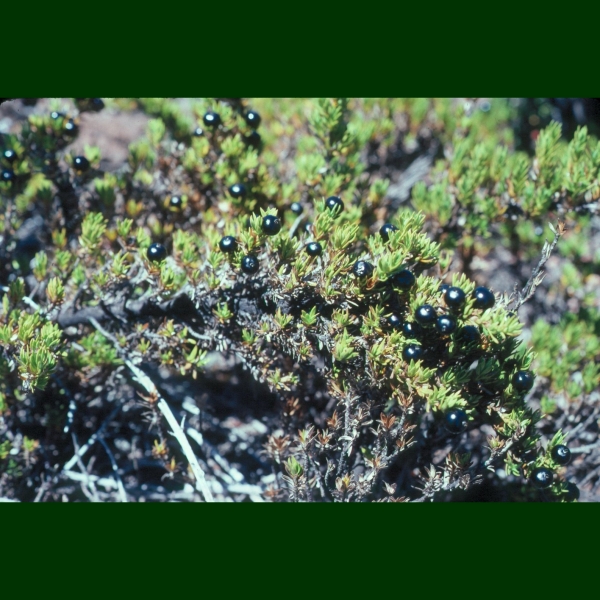 Hawaiian Name(s): ‘aiakanēnē, kūkaenēnē, lepnēnē, nēnē, punēnē pilo, hupilo
Hawaiian Name(s): ‘aiakanēnē, kūkaenēnē, lepnēnē, nēnē, punēnē pilo, hupiloScientific Name: Coprosma ernodeides
Vernacular Name: none
Family: Rubiaceae
Status: endemic
Authority: A.Gray
Description: Many-branched, trailing shrubs.
Habitat Occuring in open sites on lava & cinder fields in subalpine woodland, 1220-2600 m on East Maui and Hawai‘i (Wagner et al. 1990:1125).
Medicines:
Non Medicinal Uses: The black, shiny fruits used to make lei (McDonald 1989:67). The inner bark of the stem produces a yellow dye; the fruit a purple to black dye (Krauss 1993:65).
Specific gravity of wood: unknown
Famous Locations:
Mele:
`Ōlelo Noeau:
Dye Color and Parts: Yellow (stem inner bark) & purple to black (fruit)
Kino lau:
Location on Bishop Museum Kalihi Campus:
Propagation Information: Native Plants Hawaii.
